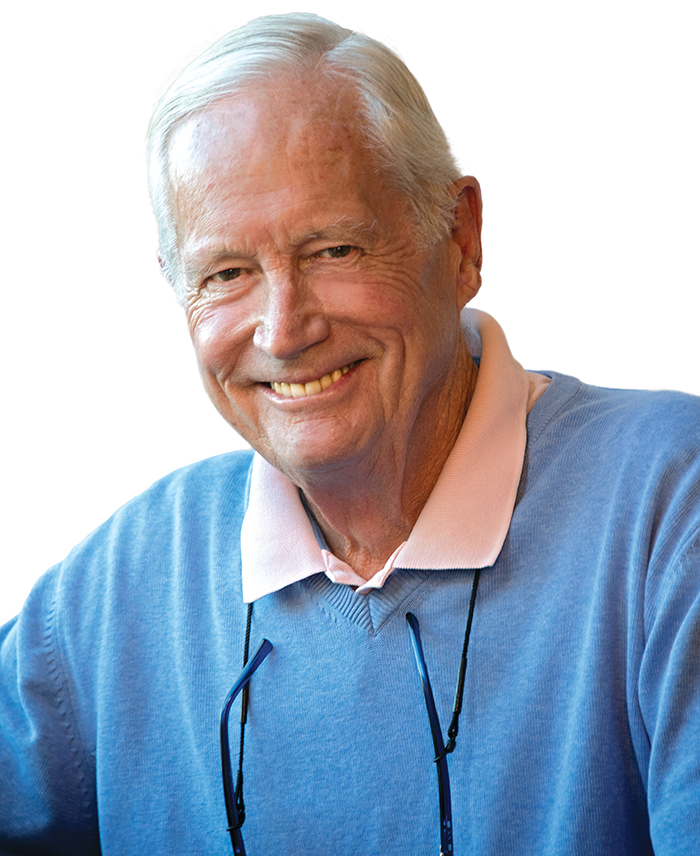
“Even if we don’t blast ourselves to pieces, our homeland, this beautiful blue planet, is becoming unlivable. And we have no one to blame but ourselves,” writes The gadfly columnist ROBERT MACKLIN.
A recent column on whether mathematics was an invention, or a discovery drew more email responses than almost any other.

I shouldn’t have been surprised. The readership of this splendid publication is clearly highly intelligent and of a questing mind.
Those who favoured one or the other split fairly evenly, and after subsequent discussion I find myself more in the “invention” camp. After all, Pi was unquestionably an invention of Archimedes and it’s only an approximation anyway.
It’s a human tool. Creatures with much bigger brains than ours – the sperm whale, for example – have no need of such tools so didn’t bother inventing them. The “discovery” folk are probably guilty of the same homocentric outlook that science has been battling since Galileo dared report the findings of his telescope.
This was a great relief since, as mentioned in the original Gadfly column, the question had kept me awake at nights when I should be saving my energy for the daily editing of my next book out in 2025, the hidden story of the co-founder of our national capital, Charles Weston.
Trouble is, there’s another question that leapt in to take its place. It too has fierce proponents on both sides and is even more consequential for our daily lives: Is there really such a thing as “free will”?
Science is doubtful. Experiments have shown that our brains decide on a course of action some four seconds before we are aware of it*. But that’s not the whole story. Far from it.
For example: in retrospect, everything that happened in the past was inevitable. This is obvious because all the factors aligned to make it happen.
So, how can there be “free will” when we are all simply responding to what went before? And if we’re merely the puppets of yesterday, how then can we be blamed for our actions?
It’s true that as a society we lay down firm guidelines we call “the law” to direct our behaviour and hopefully that should be sufficient to keep the place in reasonable running order. But look around. There is a crisis of domestic violence. Massive cartels are making billions trading worldwide in banned substances. And they’re corrupting the folk appointed to deter them.
There are wars raging in Africa, the Middle East and the fringe of Europe where it seems only a matter of time before that terrifying American invention, the atomic bomb makes its second entry, stage right.
In fact, war has become such a part of our existence that we’ve even made laws designed to apply to the utter lawlessness of this mutual murder! And every night on TV, the news shows children being bombed, yet we don’t rise up as one and demand it cease!
Even if we don’t blast ourselves to pieces, our homeland, this beautiful blue planet, is becoming unlivable. And we have no one to blame but ourselves. The guidelines, it seems, were insufficient to discourage the greed, the selfishness and the self-reliance required.
Instead, we preferred to listen to the fables of a shaman-cum-priesthood that promised the same old cure-all to our fear of death. And no matter how extravagant their temples – from the looted pyramids to the empty cathedrals, the blue mosques to the golden buddhas – they stand as sad monuments to our fatal credulity.
It is hard to believe that on a bare canvas, we would opt for the horrors that confront us. Are they really a product of our “free will”?
Over to you.
*In research published in 2013, neuroscientist John-Dylan Haynes, of the Bernstein Center for Computational Neuroscience Berlin, and his colleagues had volunteers decide whether to add or subtract two numbers while in the fMRI scanner. They found patterns of neural activity that were predictive of whether subjects would choose to add or subtract that occurred four seconds before those subjects were aware of making the choice.
Who can be trusted?
In a world of spin and confusion, there’s never been a more important time to support independent journalism in Canberra.
If you trust our work online and want to enforce the power of independent voices, I invite you to make a small contribution.
Every dollar of support is invested back into our journalism to help keep citynews.com.au strong and free.
Thank you,
Ian Meikle, editor








Leave a Reply